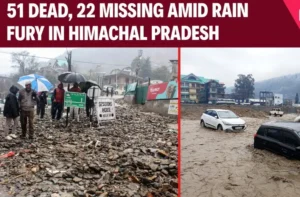On April 22, 2025, the tranquil tourist destination of Pahalgam in Jammu and Kashmir was shattered by a brutal terrorist attack. Five armed militants targeted tourists, killing 26 civilians, most of whom were Hindu, along with a Christian tourist and a local Muslim who tried to intervene. The attackers, armed with military-grade weapons, singled out victims based on their religion, forcing some to recite the Islamic kalima before executing them. This marked the deadliest attack on civilians in India since the 2008 Mumbai attacks.
India-Pakistan Tensions in the Wake of the Attack
The Pahalgam terror attack immediately intensified tensions between India and Pakistan. Indian authorities accused Pakistan of supporting cross-border terrorism, citing forensic and intelligence evidence linking the attackers to Pakistan-based groups. In response, India suspended the Indus Waters Treaty, expelled Pakistani diplomats, and closed its borders. Pakistan denied involvement, retaliated by suspending the Simla Agreement, restricting trade, and closing airspace. These moves led to a brief but intense military conflict, with both sides launching strikes and drone attacks before agreeing to a ceasefire brokered through military channels.
Links to Pakistani Military and Intelligence
Indian investigations revealed that the attackers had received elite military training in Pakistan, specifically from the Special Service Group. The mastermind, Hashim Moosa, is a former Pakistani para-commando who joined Lashkar-e-Taiba and has been linked to several attacks in the region. Indian authorities traced digital evidence and communication intercepts to safe houses in Pakistan, concluding that the attack was orchestrated under the directives of Pakistan’s intelligence agency, the ISI.
Religious Discord and Economic Impact
External Affairs Minister S. Jaishankar stated that the attack was designed not only to instill fear but also to sow religious discord and cripple Kashmir’s vital tourism sector. He emphasized that the attackers deliberately introduced a religious element, targeting non-Muslims to inflame communal tensions and destabilize the region’s fragile peace.
Global and Domestic Response
The global community, including the United Nations and the United Kingdom, condemned the attack and expressed solidarity with India. In response, India launched Operation SINDOOR, a targeted military campaign neutralizing key terror camps in Pakistan. Despite a ceasefire agreement, sporadic violations continued, keeping both nations on high alert.







